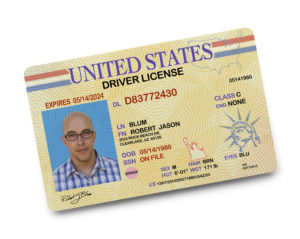
If you end up committing a serious driving infraction, or you’ve been found guilty of a number of lesser traffic offenses, the state of Minnesota can step in and suspend, revoke or cancel your driver’s license. We know how important it is that your keep your driver’s license, so don’t just ignore citations or letters from the state and continue driving like there is nothing wrong. Be proactive and take care of the problem before it gets worse. The best way to do this is with a traffic ticket lawyer.
Loss of Driver’s License
Your driver’s license can be revoked or suspended for a variety of reasons, and many people end up losing their license due to an accumulation of offenses within a short period of time. For example, your license will be revoked for 30 days if you receive three misdemeanor traffic offense convictions within a 12-month period, 90 days for four convictions in a 12-month period, or 1-year for five or more convictions within 12 months. The time period stretches from the date of the infraction, not the date of the conviction.
You might be wondering, “How can someone get more than three traffic violations in a 12-month period if their license is suspended after three misdemeanor offenses?” Well one common way people get more violations is because they are caught driving while suspended, revoked or cancelled.
Under Minnesota law, driving after revocation, cancellation or suspension are considered misdemeanor driving offenses. In order to convict someone of driving after revocation, cancellation or suspension, the state must prove the following factors:
- The driver had a revoked, cancelled or suspended license at the time of the violation.
- The driver was operating a motor vehicle.
- The driver must have had reasonable knowledge that their driver’s license had previously been suspended, revoked or cancelled.
Reasonable knowledge of a previous suspension or revocation can be proved in many ways. Typically this is confirmed by the Department of Public Safety, which is required to personally serve or send first-class mail to the last known address of offender. There are other ways the state can prove that you had reasonable knowledge that your driver’s license was not in good standing, and saying that you never opened or received the letter from the Department of Public Safety may not be enough to prove that you did not have knowledge of the suspension.
Driving after revocation, suspension or cancellation is punishable by up to 90 days in jail and fines of up to $1,000. Most people avoid jail time for these types of violations, but community service and a fine is quite common, as is an automatic extension of your revoked, suspended or cancelled license.
As you can see, there can be quite the snowball effect if you don’t take care of traffic violations in a quick and orderly manner. Don’t just ignore the citation and hope it goes away, because it won’t and it may cost you your ability to drive. Whether you need help contesting a driving citation, fighting to keep your license or an explanation of how to go about getting your license back in good standing, reach out to the experienced traffic lawyers at Appelman Law Firm. We offer a free strategy session for all potential clients, so contact us at (952) 224-2277 today.





